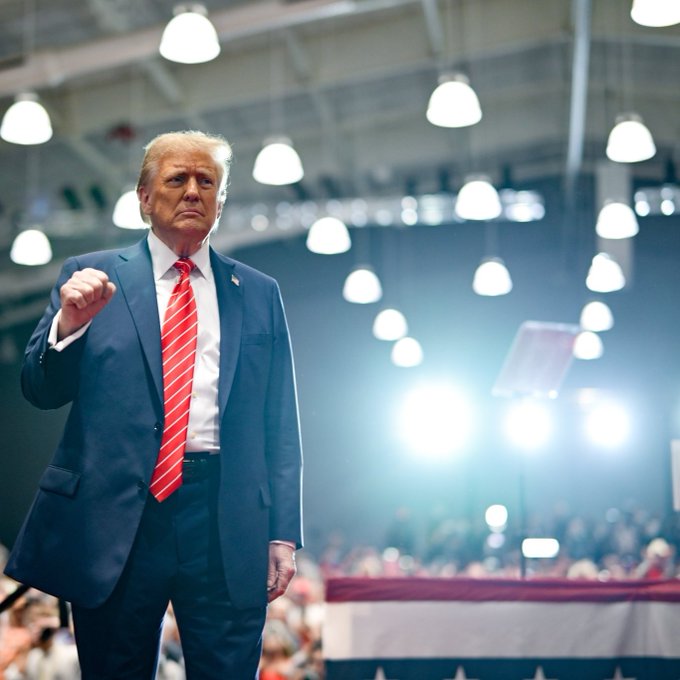Nigerian vehicle importers are expected to face increased costs following a new tariff proposal by former US President Donald Trump. The proposed 25% tariff on automobile imports, along with similar duties on semiconductors and pharmaceuticals, is part of Trump’s broader effort to overhaul global trade policies. This move, expected to take effect on April 2, 2025, could have a significant impact on Nigeria’s car market, where a large proportion of vehicles are imported from the US.
Trump’s tariff plan is a continuation of his criticism of what he sees as unfair trade practices, particularly in the automobile sector. In the US, the tariff on imported passenger cars is currently 2.5%. However, the US imposes a 25% tariff on pickup trucks from countries outside Mexico and Canada, which has made these vehicles particularly profitable for US-based automakers. Trump has frequently argued that the US is disadvantaged by the high tariffs other countries, such as the European Union (EU), impose on US-made cars. For example, the EU has a 10% tariff on vehicles, which is four times higher than the US rate on passenger cars.
The tariff increase is not limited to vehicles. Trump also plans to impose similar tariffs on other sectors, such as semiconductor chips and pharmaceuticals, which would start at 25% and increase over time. These tariffs are part of a broader strategy to reduce the trade imbalance and strengthen the US manufacturing sector.
The proposed tariffs could have far-reaching consequences for Nigeria, which relies heavily on imported cars, particularly from the United States. Mr. Nnadi Ugochukwu, Head of the Department of Shipping and Terminals at the National Association of Government Approved Freight Forwarders (NAGAFF), explained that the tariff increase will inevitably affect vehicle prices in Nigeria.
“Yes, it will definitely affect vehicle importation into Nigeria because most of the cars that come into Nigeria are from the US. If the purchase price goes up, Nigerian importers will have to sell at higher prices,” Ugochukwu stated.
For many Nigerians, cars are an essential part of daily life, especially in urban areas where public transportation options can be limited. The rise in import prices will likely lead to higher retail prices for vehicles, making it more difficult for Nigerians to afford new cars. Furthermore, the tariffs could result in a reduction in the number of vehicles imported into the country, as higher costs may discourage some importers from purchasing certain models. This could lead to fewer choices for Nigerian buyers.
In addition to affecting vehicle prices, the tariffs may have a ripple effect on Nigeria’s broader economy. The auto industry is a significant contributor to the country’s economy, providing jobs in various sectors, including importation, distribution, and sales. Higher import costs could affect the profitability of businesses involved in the importation and sale of vehicles, potentially leading to job losses and reduced economic activity in this sector.
The proposed tariffs also come at a time when Nigeria’s economy is still recovering from the impacts of the COVID-19 pandemic. Higher costs of living, combined with reduced access to affordable vehicles, could put additional strain on Nigerian consumers.
Trump’s tariff plans are not without controversy. European Union (EU) officials have disputed Trump’s claims that the EU is willing to reduce its tariffs on US automobiles to match US rates. Maros Sefcovic, the EU’s Trade Chief, is expected to meet with US officials in Washington to discuss the proposed tariffs. Sefcovic has made it clear that the EU does not intend to make any such concessions to the US regarding tariffs on automobiles.
Trump has also argued that the EU should increase its imports of US-made cars and other goods. However, the EU has rejected this idea, claiming that it would not be practical or beneficial to alter trade agreements in such a way. This disagreement highlights the ongoing tensions between the US and its global trade partners, particularly regarding tariffs and trade imbalances.
In addition to cars, Trump’s plan includes sector-specific tariffs on pharmaceuticals and semiconductor chips. These goods are vital to many industries, and the higher tariffs could lead to price increases on products that rely on these components. For example, the cost of technology, electronics, and medical products could rise, leading to higher prices for consumers worldwide. In the case of Nigeria, the impact of these tariffs on pharmaceutical imports could further strain the country’s healthcare system, which already faces challenges in terms of access and affordability.
The Nigerian auto industry has been hit hard by fluctuating exchange rates, high import duties, and unpredictable trade policies over the past few years. The proposed US tariffs only add to these challenges. Nigerian car dealers and auto importers are concerned that the higher costs of US vehicles could lead to reduced demand for imported cars, which are already expensive due to the high import duties in Nigeria.
As the tariffs are set to take effect in April, Nigerian vehicle importers and buyers alike are bracing for the impact. While the US government argues that these tariffs are necessary to protect American manufacturers, the consequences for global trade and developing economies like Nigeria could be severe. Higher car prices, reduced imports, and economic strain are just some of the challenges that may arise.

